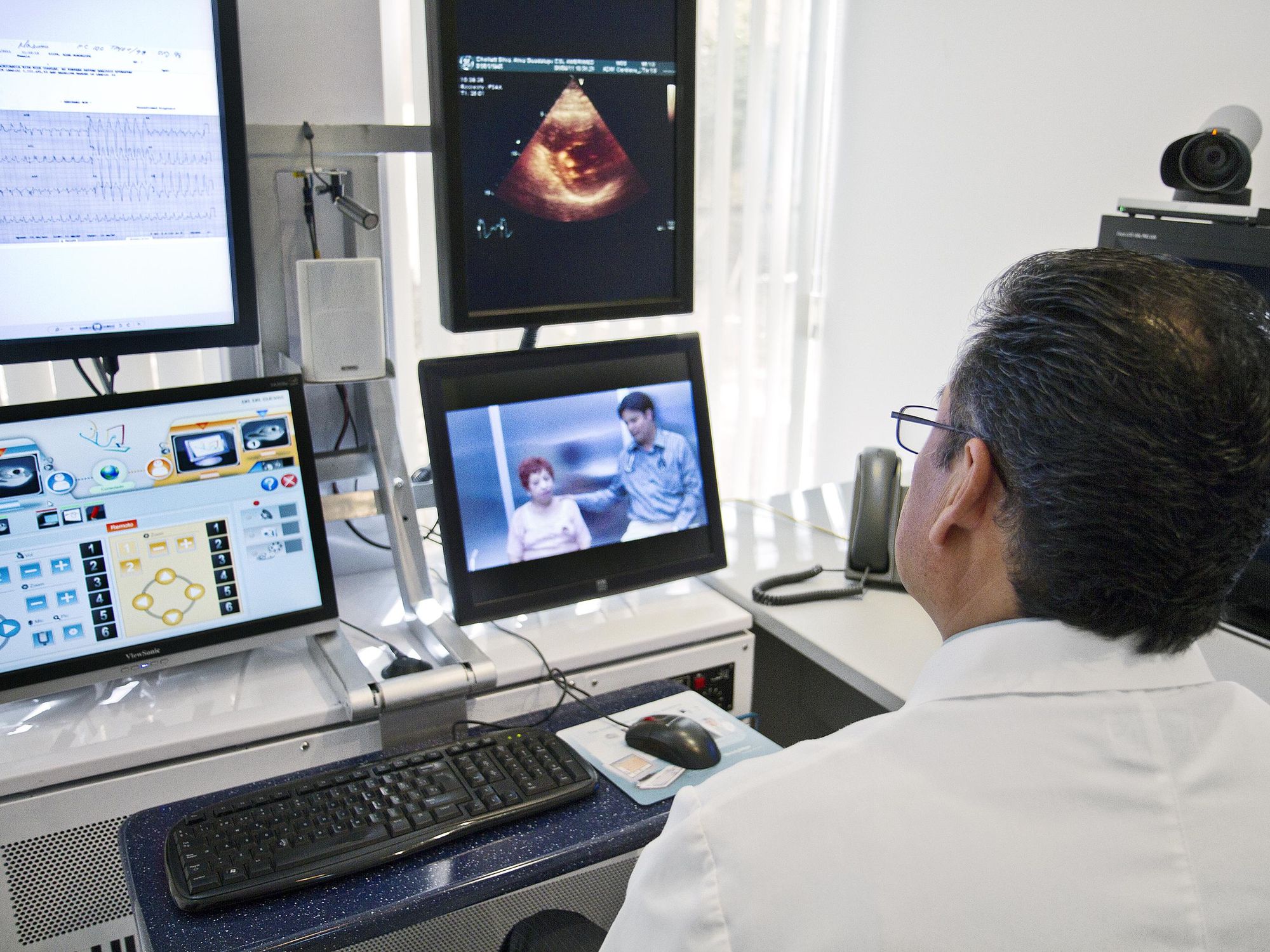Despite Industry Turmoil, VCs Believe the Case for Telehealth Startups Is Stronger Than Ever
Samson Amore is a reporter for dot.LA. He holds a degree in journalism from Emerson College. Send tips or pitches to samsonamore@dot.la and find him on Twitter @Samsonamore.

Telehealth startup Cerebral entered the medical tech scene two years ago, backed by over $400 million in venture funding and a promise: remote access to mental health professionals and treatment that could help patients with a range of behavioral challenges, from depression to anxiety to ADHD, all bundled in a neat monthly subscription priced at $100 per month.
But by May of this year, Cerebral’s practices began to crumble under scrutiny. The company’s problems accelerated when an ex-executive filed a lawsuit in April alleging he was fired for speaking out against the Cerebral’s tendency to over-prescribe ADHD stimulants. The lawsuit then led to a Justice Department investigation into the company’s “possible violations” of the federal Controlled Substances Act, which is still pending alongside a separate inquiry from the Drug Enforcement Administration.
After the investigation, Cerebral fell on hard times. It paused prescriptions for ADHD medication for new patients and former CEO Kyle Robertson was ousted in May. But the strategy never panned out. This week, Cerebral announced it would cut 20% of staff, an estimated 400 people.
Cerebral’s troubles have rippled throughout the industry. One of the company’s partners, Truepill, a tech platform that helps telehealth companies offer prescriptions and diagnostics conducted its fourth round of layoffs in September. Noom, a similar telehealth coaching platform, laid off roughly 500 people and lost its CFO earlier this month.
But despite all the turmoil in the telehealth landscape, local venture capitalists say they don’t anticipate these issues to be a harbinger of doom for the entire industry. In fact, the VCs dot.LA spoke with said they believe the use case for telehealth and digital doctor’s visits is stronger than ever as COVID-19 cases and other infections are expected to tick up during the winter.
“There was definitely a correction in the market due to the amount of cash that has entered the digital health space in past years,” Upfront Ventures investor Kesar Varma told dot.LA. He said he’s seen less funding go towards health tech in recent months – part of the overall funding slowdown as VCs remain cautious about investing their accumulated wealth – and that investors are more keen to wait for healthtech startups to prove a proof of concept before backing later rounds.
Still, Varma noted that in the wake of Cerebral’s public flame-out, investors are more cautious. He said that when companies that raised at massive revenue multiples struggle, it trickles down to smaller startups.
“I think there was a view that telehealth could be applied to every type of care delivery modality, but there are some areas of healthcare where an in-person meeting will always be preferred by the patient,” Varma added. “We do believe that things like teletherapy are here to stay, it's just important to grow in a sustainable and thoughtful manner and not overpromise.”
Varma wasn’t the only local investor who said they thought the telehealth landscape over-expanded.
“Investors pumped the brakes on ‘general’ VC investing, based on the narrative behind the April 1 NASDAQ downturn,” explained Jay Goss, partner at Pasadena-based health investment fund Wavemaker Three-Sixty Health. “In short, health-tech investing is down, but for lots of good reasons, it’s down slightly less than non-health-tech.”
Goss pointed to some of the use cases – other than therapy and online prescriptions – where telehealth could really fill a need as one reason why he’s still optimistic about the industry at large. In particular, he said “a lot of use cases where the patient simply prefers it,” and provided the example of new mothers accessing “lactation consultants at 2 in the morning.” In addition, Goss said there’s a high demand for care and simply not enough physical space at doctors offices or hospitals, which led to excruciating wait times during the pandemic.
“On the supply side, we are simply running out of supply,” Goss added. “In urban and rural markets, we don’t have enough hospital beds and clinics and the problem gets worse as the senior population grows.” Moreover, there’s already a huge clinician shortage, which only got worse during the pandemic due to burn-out. “As a society, we must start taking care of people outside the four walls of a hospital or clinic,” Goss said.
So while Cerebral’s use case for prescribing antidepressants to virtual clientele might not be the most viable long-term business model, there is definitely a growing need for telehealth that can accommodate patients who can’t come in for a physical appointment. The Cerebral saga might be a cautionary tale, but it could also be a valuable learning experience for both investors and founders looking to create the next generation of telehealth unicorns.
Samson Amore is a reporter for dot.LA. He holds a degree in journalism from Emerson College. Send tips or pitches to samsonamore@dot.la and find him on Twitter @Samsonamore.





 Image Source: Skyryse
Image Source: Skyryse